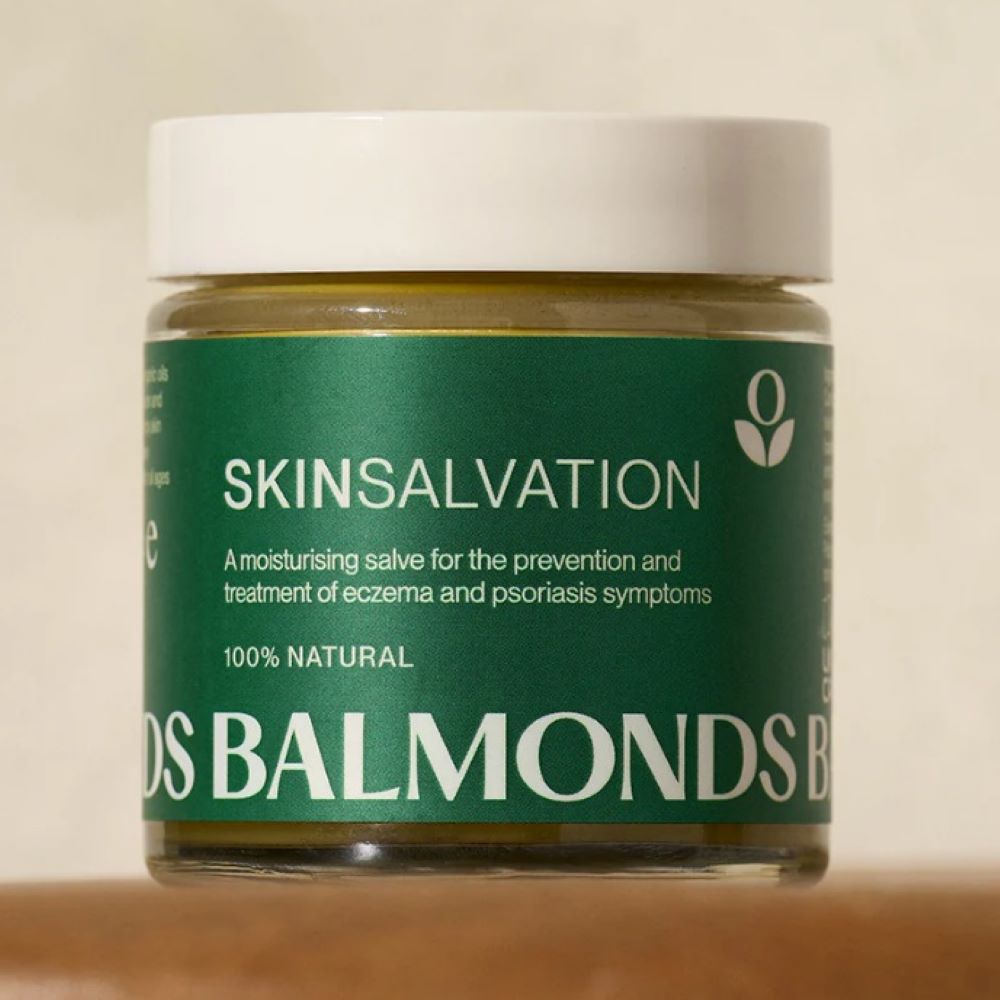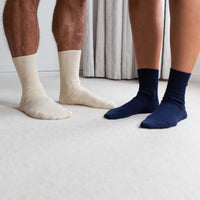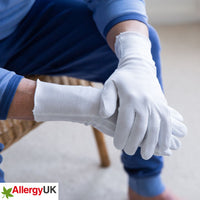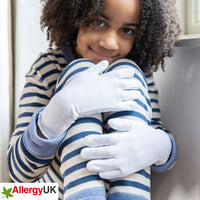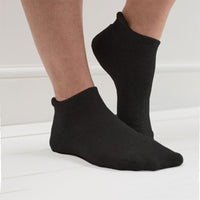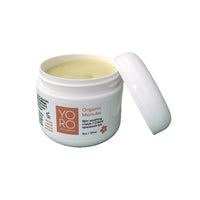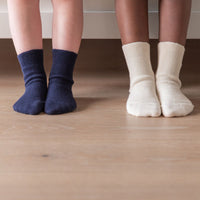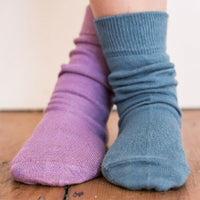Eczema Frequently Asked Questions
What is Eczema?
Eczema (also known as dermatitis) is a highly individual condition which varies from person to person and comes in many different forms. It is not contagious so you cannot catch it from someone else.
In mild cases of eczema, the skin is dry, scaly, red and itchy. In more severe cases there may be weeping, crusting and bleeding. Constant scratching causes the skin to split and bleed and also leaves it open to infection.
What Causes Eczema?
Eczema is caused by a combination of genetic and environmental factors that affect the skin’s ability to retain moisture and protect against irritants. A weakened skin barrier makes it more sensitive to allergens, bacteria, and harsh chemicals, triggering inflammation. Common triggers include allergens, stress, weather changes, and irritants like soaps or detergents.
What Fabric is Best for Eczema?
Natural, breathable fabrics like cotton, bamboo, and silk are best for eczema as they reduce irritation and allow airflow. Avoid rough, synthetic, or wool fabrics that can cause friction and overheating.
Read more about the best fabrics for eczema.
What Washing Powder is Good for Eczema?
Fragrance-free, hypoallergenic washing powders without harsh chemicals or dyes are best for eczema-prone skin. Look for products labelled "sensitive skin", "dermatologist-tested" and “non-biological” or “non-bio” to reduce irritation. Rinsing clothes thoroughly can also help remove any residue that might trigger flare-ups.
Please see our Washing & Care Guide for more information.
Is Manuka Honey Good for Eczema?
Yes, Manuka honey is good for eczema as it has natural antibacterial, anti-inflammatory, and wound-healing properties. It can help soothe irritated skin, reduce infection risk, and promote healing when applied as a mask or spot treatment. However, results vary, so a patch test is recommended before regular use.
Is Dermatitis a Type of Eczema?
Yes, dermatitis is a broad term that includes various types of eczema, such as atopic dermatitis and contact dermatitis. Both conditions cause inflammation, itching, and redness but may have different triggers. "Eczema" and "dermatitis" are often used interchangeably in medical contexts.
Is Psoriasis a Type of Eczema?
No, psoriasis and eczema are separate skin conditions, though they share some symptoms like redness and itching. Psoriasis is an autoimmune disease that causes thick, scaly patches, whereas eczema is linked to a weakened skin barrier and inflammation. Treatment approaches also differ between the two conditions.
What is Latex Used For?
Latex is commonly used in medical gloves, balloons, rubber bands, condoms, and certain textiles. It is valued for its elasticity, durability, and water-resistant properties. Some people develop a latex allergy, which can cause skin irritation or respiratory reactions.
Our top tips for reducing the prospect of developing a latex allergy are:
-
Buy clothing with no elastic in
-
If clothing does require elastic try to buy garments that are ‘latex free’ or use manmade elastic and to be safe ensure it is cotton covered (e.g. waistbands).
Wear cotton gloves underneath washing up or medical gloves.
Where Else Can I Go for Help?
Eczema Outreach Support – EOS was founded in 2011 to help children, young people (up to 17yrs) and parents of children with eczema thrive. They offer a helpline and email support – email them at info@eos.org.uk or call them on 01506 840 395 (or free phone 0800 622 6018). See here for more info on how we support them and a link to their site.
National Eczema Society has helpful information and advice on their website www.eczema.org about the different types of eczema, treatments and triggers.

